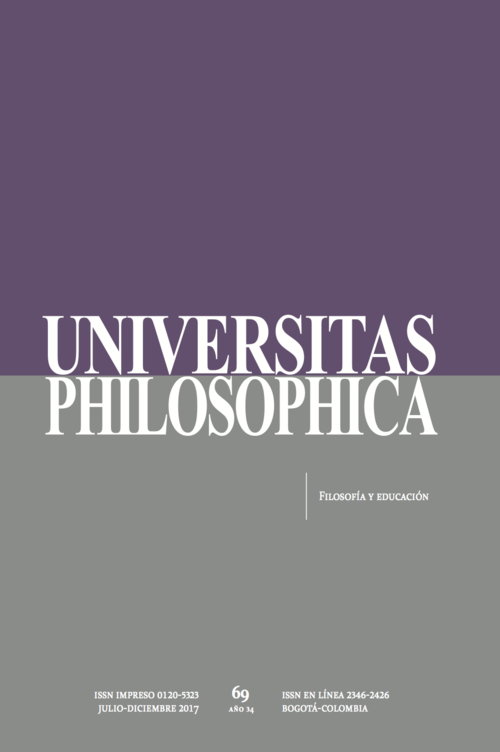Displacements, Transformations and Challenges of Philosophical Education in a Democratic Society: Reflections Upon an Old Philosophy Notebook
##plugins.themes.bootstrap3.article.details##
In this paper the author reflects upon the past, the present and the future of philosophical education within the framework of a democratic mode of living, integrating three levels of argumentation: an autobiographic level, triggered by the encounter with an old school notebook that belonged to the author’s father; a conceptual level, in which the author recalls John Dewey’s pragmatist approach to philosophy; and a descriptive and proactive level, in which the author examines recent developments concerning the teaching of philosophy and proposes a perspective on philosophical education in tune with these. The author underscores the importance of different displacements and transformations undergone by the practice of teaching philosophy during the last century, and sets up a contrast between the old practices, intended to provide a “correct view of the world”, and the urge for philosophy to provide a critique of society and knowledge. In this way, the author draws on Dewey’s ideal, according to which philosophy should carry out both a critique and a reconstruction of present experience. Finally, the author sets forth ten challenges for future philosophical education.
educación filosófica, democracia, John Dewey, enseñanza de la filosofíaphilosophical education, democracy, John Dewey, teaching philosophy


